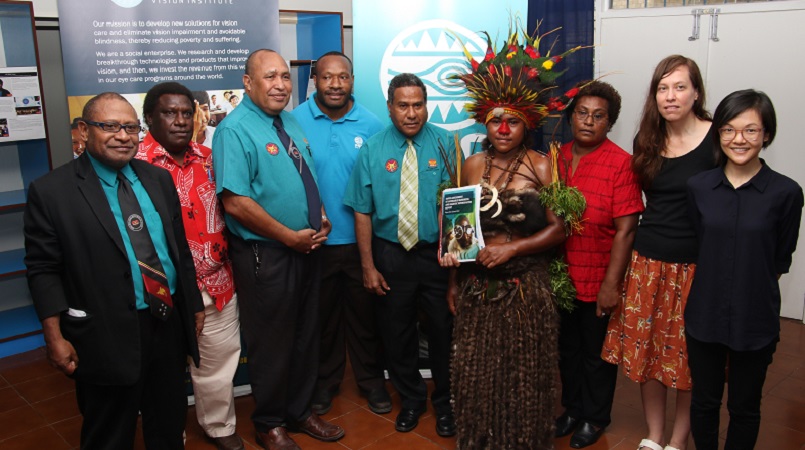
The first national Rapid Assessment of Avoidable Blindness (RAAB) research in Papua New Guinea has revealed that 40,746 people in the country are blind in both eyes.
The RAAB is a population-based survey to assess the prevalence of blindness and vision impairment, its main causes, the output and quality of cataract surgery and other indicators for eye care services.
The study was conducted by the National Prevention of Blindness Committee (PBL) carried out at 100 randomly selected communities in PNG.
The study determined the primary cause of blindness, which is untreated cataract, and revealed that 67,987 people are blind in one eye.
It showed that more women are unaware that cataract treatment is possible in PNG and are less likely to feel that they need surgery.
Dr Anthea Burnett of Brien Holden Vision Institute and Vision CRC said there is a need for more awareness on cataract surgery services in PNG.
Country’s chief ophthalmologist, Dr. Simon Melengas, presented the data and findings to representative of the National Department of Health (NDoH), Dr Paison Dakulala, today.
The results provide valuable information for NDoH, PBL and other key stakeholders to better understand the landscape of eye health in PNG and plan eye health initiatives accordingly.
Dr. Melengas said the survey is a pre-requisite for all the countries that have signed the document on Universal Eye Health in the world, and PNG is one of those signatories.
He thanked all stakeholders involved in the successful research study and said PNG is one of the few countries in the Pacific region that has completed the study report.
Dr Dakulala said NDoH will now take on the challenge to implement the findings of the study.
He added that NDoH will be advocating very strongly at all levels to ensure that it brings the figures down and prevent the preventable blindness.
